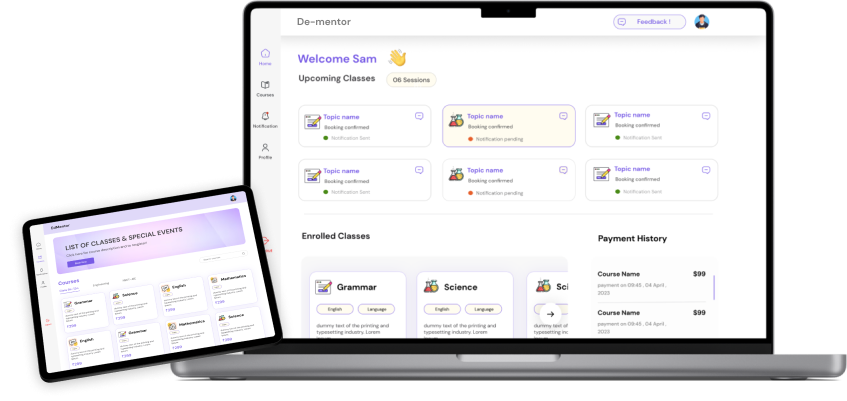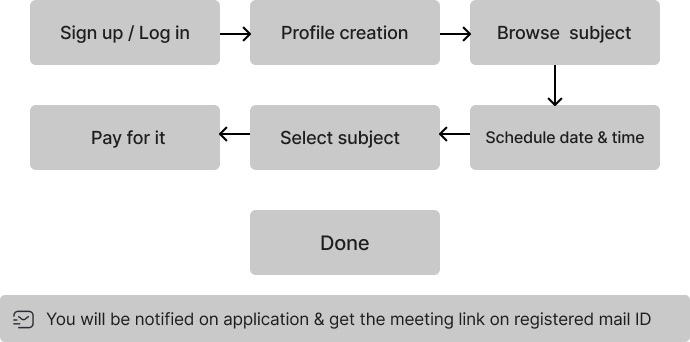DE-mentor
Online mentoring platform, where you can get mentorship according to your schedule.

Overview
DE-mentor is an innovative mentoring application designed to facilitate meaningful connections between students seeking guidance and professionals eager to share their expertise. Rooted in a deep understanding of user needs and preferences, where mentors offers flexible scheduling time that enables users to coordinate mentoring sessions at their convenience. Integrated calendar functionalities and automated reminders streamline the scheduling process, ensuring seamless communication and collaboration between mentors and mentees.
Problem am solving
Students face problems when seeking personalized career guidance and mentorship. Many individuals need help finding suitable mentors. They often need more resources and connections to connect with experienced mentors who can help them navigate on the right path
What I solved
The solution is DE-mentor app that connects students with experienced mentors. The app leverages advanced matching algorithms to pair mentees with mentors who possess the relevant skills, knowledge, and expertise. It offers a platform for meaningful one-on-one mentoring sessions, and networking opportunities.




